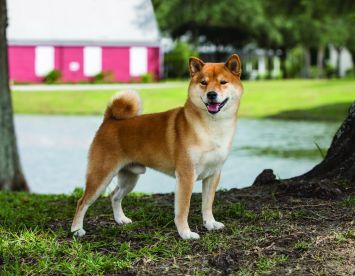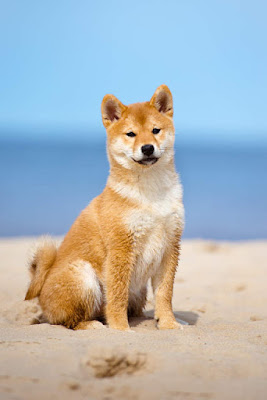Dog Aggression in Shiba Inus: How aggressive are they?
Many times I'm asked questions like,"Are Shibas great with other dogs?" ;"Are Not Shibas competitive?" Or perhaps,"Why do lots of posts say Shibas aren't dog-type dogs?"
The responses actually stem back into the breed's originally filmed purpose as well as the quantity of socialization the person Shiba gets under the age of 16 weeks. But, I wouldn't call the Shiba Inu that a"dog aggressive" strain.
The Shiba Inu is contrasted often to being"cat-like" in its own character, most notably in its own individual aloof character with strangers and within their own cleanliness.
But while many men and women know the Shiba's possibility to become shy and cautious of strangers when not properly socialized, they have a tendency to overlook this attribute exists in regards to being around other dogs too.
And just like it's uncommon to observe a Shiba that excitedly jumps upon almost any stranger that it matches, it's extremely unlikely to locate a Shiba which is completely comfortable with each dog it matches, particularly the enthusiastic"in your face" type puppies.
This isn't true aggression; instead this is actually the Shiba expression,"hey, you want to escape my head, I dont really enjoy it, and if you do not back off, I will need to teach you a lesson!"
True aggression is equally unprovoked and the puppy causes significant harm to another dog. This is not a snap or scuffle that only leads to spit and ceases with a shout.
This is a puppy which places a second dog in its mouth, shakes it, does not let go until it's pried off and another dog is left with acute wounds which need veterinary attention.
But let us face it, many breeders, men and women in the show world, vets, even magazine editors, aren't dog coaches and they are not behaviorists.
Another dilemma is that to tag a puppy as"dominant","competitive", or perhaps merely"stubborn" sets the proprietor for feeling that they will need to maintain charge of the dog in a fashion that's in reality competitive.
This normally results in earning coaching methods which involve anxiety, force, punishment, and alpha complexes that have been scientifically proven to not work, and could lead to worse behaviours from your pet in the types of aggression and fear. And worst of it destroys your bond with your puppy.
Are you outside of your head!?!??! LOL!!!! Yeah, that is a wonderful idea!
Let us take an unaffiliated breed that has been bred PURPOSEFULLY to think for itself with no advice of guy and"train" it by means of choke chains, alpha rolls, scruff shakes, as well as additional curricular training. Yeah, that is guaranteed to produce the puppy WANT to listen .
Shibas are incredibly intelligent and therefore are actually a number of the easiest dogs to train, if you are aware of how to properly inspire your Shiba. And that independent series will operate in your favor since it's simpler to get a Shiba to close out the rest of the planet (dogs, others, scents --unless it is off leash naturally but I do not take that risk ) and listen to you in the event that you've left the training process enjoyable.
They'd really rather hear their proprietor than be bothered by the other puppy or the odd individual or child, but only if the practice is enjoyable and the Shiba sees the advantage from it.
You may wish to come across an authentic accredited trainer or behaviorist (ask to get a diploma as anybody can call themselves a behaviorist, but a legitimate behaviorist has their own PhD) that utilizes ONLY positive reinforcement, force-free approaches using their training which could enable you to rectify and handle the circumstance.
Should they use some other punishment it ought to arrive in the kind of removing or diverting the puppy away from what they're responding towards but NEVER anything like a physical correction.
The kinds of punishment which aren't detrimental to use are noises to startle the puppy (can with pennies, air ducts, clap hands, stomp feet) or even a"removal procedure" like turning instantly another direction on a walking and walk at a brisk speed or used as a period outside behind a door within a house.
But, it is a whole lot more important to be rewarding the dog for those behaviours you DO WANT, instead of concentrate on penalizing or perhaps redirecting the behaviours you do not want. Rewarded behaviours will be readily provided by the puppy next time the situation occurs.
Additionally, you might want to accept the fact your Shiba might not have gotten appropriate socialization in its first few months as a young pup, since the prime social interval for any puppy is between 5 months and 16 weeks old.
Or you might need to accept that your Shiba doens't love being mauled by enthusiastic dogs in the dog parks or even getting goosed by off leash dogs outside in public and you'll want to take appropriate measures to guarantee the security and comfort of your own dog.



Comments
Post a Comment